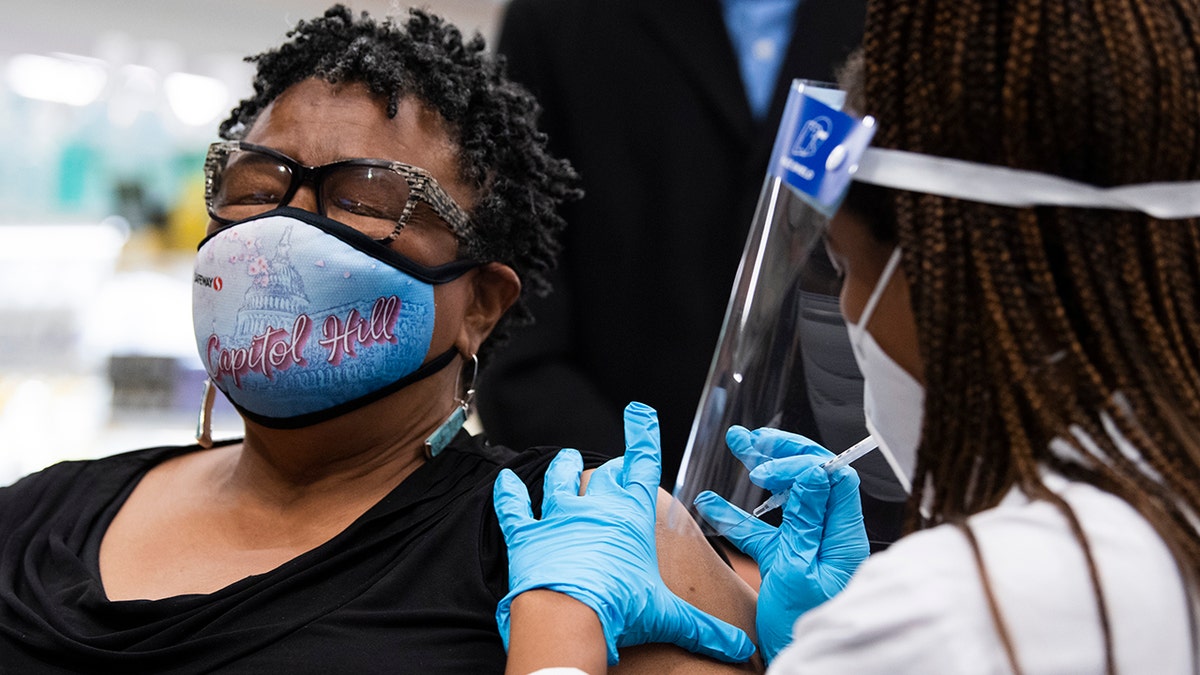Fox News Flash top headlines for March 16
Fox News Flash top headlines are here. Check out what's clicking on Foxnews.com.
Pfizer and BioNTech asked U.S. regulators on Tuesday to authorize an additional booster dose of their COVID-19 vaccine for seniors.
The companies said Israeli data suggests that people over the age of 65 would benefit from a fourth dose.
WHO SAYS NO EVIDENCE THAT COVID BOOSTERS ARE NEEDED FOR HEALTHY CHILDREN, YOUNG ADULTS
The Centers for Disease Control and Prevention (CDC) and the Food and Drug Administration (FDA) would need to approve the request.
The U.S. currently recommends a primary series followed months later by a booster dose for everyone age 12 and older.

Germaine T. Leftwich, 67, receives a Pfizer COVID-19 vaccine booster shot from Dr. Tiffany Taliaferro at the Safeway on Capitol Hill in Washington, D.C., on Monday, October 4, 2021. ( Tom Williams/CQ-Roll Call, Inc via Getty Images)
"The protection that you are getting from the third, it is good enough, actually quite good for hospitalizations and deaths. It’s not that good against infections," Pfizer CEO Albert Bourla told CBS on Sunday. "But, we are just submitting those data to the FDA and then we will see what the experts also will say outside Pfizer."
While coronavirus cases have plummeted since the winter's omicron surge, with the agencies and state and local governments moving to ease pandemic restrictions, public health leaders warn that the world must remain vigilant and continue to use the tools that protect against the virus and potential new variants.
So far, a fourth dose is only recommended for Americans with severely weakened immune systems.
FAUCI SAYS FUTURE REQUIREMENT FOR ADDITIONAL COVID-19 BOOSTERS BEING MONITORED
In November 2021, the CDC expanded the eligibility of COVID-19 booster shots to all adults ages 18 years and older who received a Pfizer-BioNTech or Moderna vaccine at least six months after their second dose.
In a Tuesday news release, Pfizer also cited "emerging evidence" and data from Kaiser Permanente in southern California, which "suggests that effectiveness against both symptomatic COVID-19 and severe disease caused by omicron wanes 3 to 6 months after receipt of an initial booster (third) dose."
Although authorities say vaccinations continue to offer protection against severe illness, they haven’t held up as well against milder infections – especially those due to the omicron mutant.
Calls for a booster grew once it became clear the vaccines weren’t as strong against the omicron mutant as they were against earlier versions of the virus.
However, scientists say now that most Americans will eventually be infected and that the ultimate goal of vaccination is to prevent severe illness.
CLICK HERE TO GET THE FOX NEWS APP
During the omicron wave, effectiveness against hospitalization was 91% in people who had gotten their booster two months earlier and 78% by the fourth month after that booster.
The Associated Press contributed to this report.










































